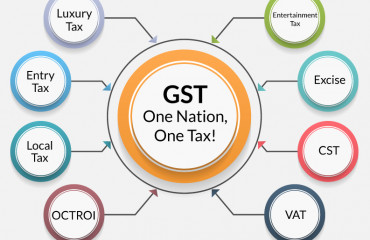
NEW DELHI : The legal framework of goods and services tax (GST) and customs, as well as officials working in the tax administration, need to be ready to deal with the shifts taking place in the economy, such as the expansion of the circular economy and growth in clean energy, Central Board of Indirect Taxes and Customs (CBIC) chairman Vivek Johri said.
NEW DELHI : The legal framework of goods and services tax (GST) and customs, as well as officials working in the tax administration, need to be ready to deal with the shifts taking place in the economy, such as the expansion of the circular economy and growth in clean energy, Central Board of Indirect Taxes and Customs (CBIC) chairman Vivek Johri said.
To that extent, tax systems might warrant a review, Johri said in an interview about how the systems may evolve in the medium term as the country strives towards becoming a developed economy.
Johri said that the movement of goods across borders for repair and refurbishing is growing as businesses try to minimize their carbon footprint by using recycled items. Also, with the explosive growth in technology, it could be possible for designs to be traded online across borders for subsequent local manufacturing through 3D printing. These trends raise difficult questions about the extent of service and goods involved in transactions and what amounts to manufacturing and recycling.
Johri said these economic shifts warrant the tax administration to be prepared.
"Determining what makes a taxable supply, to make sure leakage doesn't happen, where to categorize (a product or service) in your tariff, what is the rate that is applicable, and how will you determine the value of these transactions for the purpose of taxation," Johri said, explaining the issues involved in addressing the changing trends in the economy.
"To the extent these trends pick up, tax laws and procedures will have to be ready, and more importantly, officers need to be ready. So, you need to prepare capacity for your officers to understand these new businesses and deal with them," Johri said.
He added that in the recycling industry, one might witness higher imports or exports of goods for repairs, reconditioning or re-manufacture. Currently, these are happening on a small scale. He said these are temporary imports to the country that get repaired and are sent back. Likewise, exports also happen on highly specialized equipment that are not manufactured in India but are sent to the original supplier for repair, and they come back. In some sectors, some precious metal has to be recovered from certain types of goods, remelted and then converted into some shape. "Moving to a circular economy, we will need to think more carefully about dealing with the issues involved," he said.
The chairman also said that tech disruptions like 3D printing, the fourth industrial revolution, drone delivery of items, and changes in settling business transactions apart from digitalization of payments are trends that the tax administration has to prepare for.
Experts said that with the policy initiatives towards a green economy striving to reduce fossil fuel consumption in favour of clean energy, the government's revenue collection strategy may also have to change. Last year, India announced a green hydrogen mission to make the country a leader in this field. However, experts also said more changes would be needed in terms of ease of doing business.
"Since we are betting big on green hydrogen, for which a mission has been launched, we need to make sure that laws, including those relating to the contiguous land parcel in setting up green hydrogen plants in special economic zones, need to facilitate investments into this area. It's practically impossible to get such a big single land parcel in India," said Saurabh Agarwal, tax partner, EY.
To promote a reduction in carbon emissions, the GST rate applicable on hybrid vehicles, which do not enjoy the concessional 5% GST rate applicable to electric vehicles but are taxed at the rate applicable on internal combustion engine vehicles, may be reviewed, Agarwal said.
